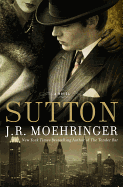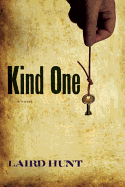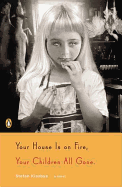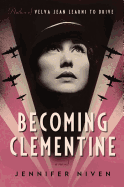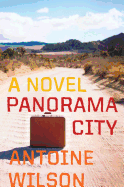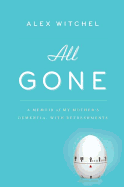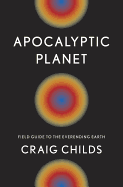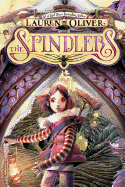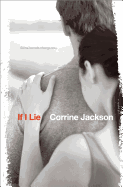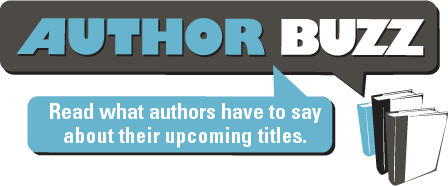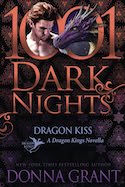 The cover of Jeremy Jackson's memoir, I Will Not Leave You Comfortless (Milkweed Editions, October 2012), depicts a boy running through what looks to be a field of wheat without end, the boy about to leave the frame of the picture. What we can see of him is blurred, maybe by motion, maybe perspective. As covers go, this pretty closely describes the words within--Jackson reflects on that period in a boy's life when everything seems to pick up speed, while at the same time never moving as fast as one would like. It's a thoughtful reflection on one year of Jackson's childhood in small-town Missouri, focusing on both the common vicissitudes of growing up and Jackson's own experience.
The cover of Jeremy Jackson's memoir, I Will Not Leave You Comfortless (Milkweed Editions, October 2012), depicts a boy running through what looks to be a field of wheat without end, the boy about to leave the frame of the picture. What we can see of him is blurred, maybe by motion, maybe perspective. As covers go, this pretty closely describes the words within--Jackson reflects on that period in a boy's life when everything seems to pick up speed, while at the same time never moving as fast as one would like. It's a thoughtful reflection on one year of Jackson's childhood in small-town Missouri, focusing on both the common vicissitudes of growing up and Jackson's own experience.
Jeremy Jackson has written two novels, three cookbooks and YA novels under the pseudonym Alex Bradley.
You've written a richly evocative look at this period of your life. There's a narrative arc to this book that reveals itself over the course of reading it. Was that a natural structure for the book, or did you have to wrestle with "what happened" versus "what I remember happened?"
I had a wealth of family documents from the period I was writing about. I had our family's calendars--with every softball game and Cub Scout meeting and dentist appointment listed. I had photographs that were scrupulously catalogued by date. I had letters, cancelled checks, my school papers and drawings, notes girls had written to me, my fifth grade class's "newspapers," detailed lists of what presents my parents gave me and my sisters for Christmas, hand-drawn maps of our garden for each year....
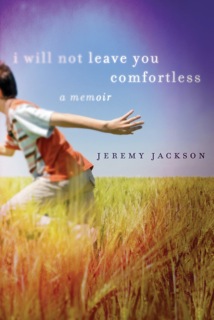 So these sources allowed me to reconstruct my family's doings in 1983 and 1984 accurately, and also brought to mind events that I had forgotten.
So these sources allowed me to reconstruct my family's doings in 1983 and 1984 accurately, and also brought to mind events that I had forgotten.
But I also had family materials that went far beyond the boundaries of my 10- and 11-year-old life. I had family journals. I had tape recordings made by my grandparents of me and my sisters. I had the notepad that my grandmother kept at her bedside for the months she was in the hospital. I had tax returns, medical bills, notes my father had made about conversations, written memories by my grandmother, written memories of my father's boyhood (30,000 words!).
So these kinds of documents gave me a much broader view of the family's story than I had as a boy or would have been able to reconstruct on my own. They inspired me to imagine scenes. For example, my grandfather wrote on my grandmother's bedside notepad that he'd taken her from the nursing home to the hospital to get a treatment; it was the first time she'd ridden in his new car and he wrote something like, "Mildred says this car sure rides nice." It was one of the last times they were alone in a car together. It was in the town where they had come on their first date 50 years before. It was a beautiful spring day. My grandmother would be dead within two months. So I wrote that scene.
Documents also allowed me to see layers of the story. In the chapter "In the Dark," I write about the events of one night from the points of view of me, my sister, my mother and my grandmother. I used my grandmother's journal, letters and my sister's journal, to construct this narrative. I was at a friend's house that night, and I remembered that we stayed up very late, three a.m. or later. And then in my grandmother's journal she writes how that same night she was in so much pain that she couldn't sleep and finally just got out of bed really early. So we probably overlapped--me up late, she up early. That kind of intersection of my story and my grandmother's story makes for magical storytelling, and it's thanks to the documentation that I uncovered it.
On the other hand, I had so many documents, so many niggling facts, that they were nearly overwhelming. For a time, I felt such a strong obligation to the facts at my disposal that I was somewhat paralyzed. The facts didn't leave much room for creativity. But I eventually pushed back and allowed myself to balance the facts with non-facts. The facts, after all, only told a surface-level kind of story, and I needed to go below the surface. That's where the story was.
You capture some American boyhood aspects perfectly, as least compared to my experiences. Did any books inspire how to present these boyhood memories from the vantage point of adulthood?
I started the book quite casually, just exploring my memories, and I was puzzled by what I'd written, but also excited because it was such a meaningful story for me. So I took the first three chapters to Frank Conroy, then the director of the Iowa Writers' Workshop. He had been an important teacher for me, and he'd written a memoir, Stop-Time, that I fiercely admired, so I figured he might give me some insight into what I'd written. He said he didn't know where it was going, but it was good, and I had to finish it. I took that as a commandment.
Unfortunately, Frank died before the book was done, but by giving me permission to muck around with a genre I hadn't written in before, by believing in me, and by pioneering the use of novelistic techniques in writing memoir, he helped me create this most beautiful and unusual book.
You've written novels, cookbooks, and now a memoir. What's next?
This is my eighth book and was by far the most difficult to write, partly because it was a new genre for me, partly because it was painful territory for me to explore, and partly because I couldn't just "make stuff up" like you can in fiction. So I'm back to writing fiction at the moment, sporadically working on a comic novel that is either horrible or wonderful, I can't tell which. Maybe it's both. Maybe I should haven chosen an easier genre, because it seems that writing a great comic novel is almost impossible--they're outnumbered by great sad novels about 40 to one.
I'd like to write another cookbook someday, if I get the right idea. And I'd like to return to young adult fiction, too. I'm the kind of writer who doesn't want to write the same book over and over, because that's just boring to me. New challenges seem to bring out the best in me. --Matthew Tiffany, counselor, writer for Condalmo
Jeremy Jackson: Layers of the Story
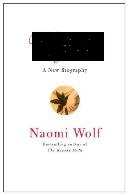 Va****: A New Biography by Naomi Wolf (Ecco, $27.99 hardcover, 9780061989162, September 2012)
Va****: A New Biography by Naomi Wolf (Ecco, $27.99 hardcover, 9780061989162, September 2012)




 The cover of Jeremy Jackson's memoir, I Will Not Leave You Comfortless (Milkweed Editions, October 2012), depicts a boy running through what looks to be a field of wheat without end, the boy about to leave the frame of the picture. What we can see of him is blurred, maybe by motion, maybe perspective. As covers go, this pretty closely describes the words within--Jackson reflects on that period in a boy's life when everything seems to pick up speed, while at the same time never moving as fast as one would like. It's a thoughtful reflection on one year of Jackson's childhood in small-town Missouri, focusing on both the common vicissitudes of growing up and Jackson's own experience.
The cover of Jeremy Jackson's memoir, I Will Not Leave You Comfortless (Milkweed Editions, October 2012), depicts a boy running through what looks to be a field of wheat without end, the boy about to leave the frame of the picture. What we can see of him is blurred, maybe by motion, maybe perspective. As covers go, this pretty closely describes the words within--Jackson reflects on that period in a boy's life when everything seems to pick up speed, while at the same time never moving as fast as one would like. It's a thoughtful reflection on one year of Jackson's childhood in small-town Missouri, focusing on both the common vicissitudes of growing up and Jackson's own experience.  So these sources allowed me to reconstruct my family's doings in 1983 and 1984 accurately, and also brought to mind events that I had forgotten.
So these sources allowed me to reconstruct my family's doings in 1983 and 1984 accurately, and also brought to mind events that I had forgotten.
